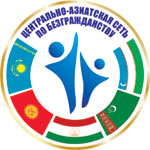Central Asian Women's Shattered "Russian Dreams"
By Farangis Najibullah, March 08, 2012.
Not so long ago, it was virtually unheard of for Central Asian women to head to Russia on their own in search of work. Financial necessity amid an extended economic crisis is breaking down many such cultural and religious taboos. But the sharp increase in the number of women leaving the region in search of work is accompanied by unforeseen and worrying consequences.
Language barriers often contribute to a lack of awareness of Russian regulations and migrants' rights. Many work and reside in the country illegally, making them reluctant to go to the authorities in times of need. These factors, among others, leave female migrants' vulnerable to a number of unforeseen dangers, including inhumane work conditions, blackmail and extortion, and physical and sexual abuse.
"I thought going to work to Russia was the answer to all my problems," says Egnara Usenova, a migrant laborer from Kyrgyzstan who now lives in Moscow. "But I didn't know what was awaiting me here."
The Russian Interior Ministry calculates that women make up 30 percent of the migrant labor force in the country, but exact figures pertaining to female migrants are difficult to determine because many do not officially register. Officials and observers are confident, however, that they are seeing a trend in which women migrants are heading to Russia in larger numbers, and they expect it to continue in the near term.
"I've been in this business since 2003, when we estimated women made up some 6 percent of the migrants," says Muzaffar Zarifov, an official from Tajikistan's state migration service. He says that percentage has since doubled, with a noticeable spike over the past few years. "Now, we're talking about at least 120,000 Tajik women becoming illegal migrants," he says, which means women now make up about 12 percent of Tajik laborers heading to Russia.
Who Can You Trust?
 And nongovernmental organizations suggest that such increases are being seen across the region.
And nongovernmental organizations suggest that such increases are being seen across the region.
Migrant women's problems usually start the moment they leave home, says Khadicha Abysheva, president of the Sana Sezim nongovernmental organization, which monitors migrant issues in Kazakhstan.
"There are certain people in Uzbekistan, Tajikistan, or Kyrgyzstan who gather women, potential migrants, to transport them to destination countries," Abysheva says.
"We get many complaints from women who say they were deceived; jobs or working conditions didn't turn out to be what had been promised," she adds. "Or sometimes, people who bring the women hand them over to other people or force them to work for free, saying, 'You still owe me money for the trip.'"
In Usenova's case, the widow from Kyrgyzstan says she was deceived by two Kyrgyz men in her first week in Russia. Usenova had turned to them for advice when she first arrived in Moscow, desperate to make money to provide for her four underage children.
"I wanted to get a Russian work permit, and I tried to do it through my Kyrgyz acquaintances," she says. "I paid them 15,000 rubles ($500) but the document turned out to be fake." Usenova later found out that she had the right to lawfully obtain the labor permit directly from the Russian authorities.
She is by no means alone. Once in Russia, migrant women commonly seek advice from middlemen – fellow migrants from Central Asia -- to find accommodation or jobs.
In many cases, says Shahlo Najmiddinova, a Tajik blogger in St. Petersburg who focuses on female migrants' issues, men take advantage of the newcomers' lack of experience in living in Russia.
Babies Abandoned, And Worse
The media are full of reports of women from Central Asia who were forced into prostitution by fellow migrants. Victims often claim they were beaten up, raped, or threatened. This month, the emergence of a video that appears to depict Kyrgyz migrants berating a woman migrant caused an outcry within the Kyrgyz community in Russia.
There are other signs of vulnerability. Officials at Moscow's N36 hospital have reported a large number of newborn babies being abandoned by their mothers, many of them migrants who were victims of rape or forced prostitution.
According to figures issued by the Kyrgyz parliament, at least 230 babies born to illegal Kyrgyz migrants are living in Moscow orphanages. Aigul Tash, a Kyrgyz NGO in Moscow, says the majority of the mothers were victims of abuse or rape by their own countrymen.
The fear of shame back home often prevents the victims from seeking help or legal advice in their native countries, let alone taking the babies home with them. Instead, they sometimes choose the most desperate ways out, such as illegal abortions, suicide, or even infanticide, according to Aigul Tash.
According to Kyrgyz diplomatic sources in Moscow, nine Kyrgyz migrants have been charged with murdering their babies over the past two years.
Fearing deportation, migrant women generally don't report the abuses they face to Russian police. "Most of the problems female migrants face -- in getting settled or finding jobs -- could have been so easily avoided," laments Najmiddinova, the St. Petersburg-based blogger.
Activists say more should be done to make potential migrants aware of their rights abroad, and suggest that they learn Russian before they head to Russia for work.
Several legal- and medical-advice bureaus for migrants have been set up in Tajikistan and Kyrgyzstan. The centers, however, are located in major urban centers, whereas migrants tend to come from the countryside.
RFE/RL's Central Asian services and RFE/RL Washington correspondent Richard Solash contributed to this report
http://www.rferl.org/content/central_asia_women_shattered_russian_dreams/24509262.html







